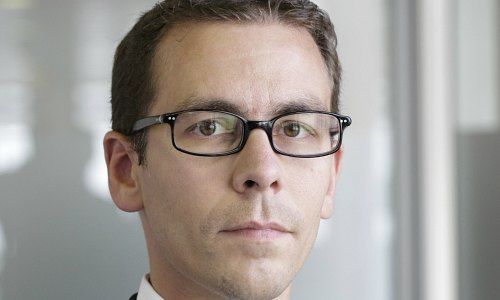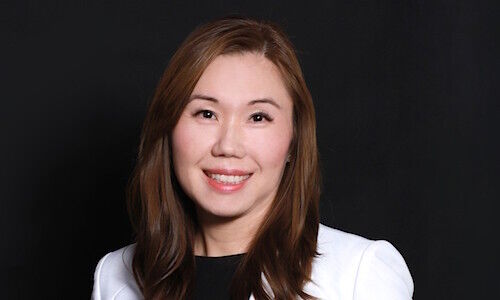Nicolas Roth: «Fake News' Threat to Investing»
What does fake news mean for investing, and how can investors profit from new, rapid-fire communication methods like Twitter, Nicolas Roth from Bank Reyl asks in his essay for finews.first.
finews.first is a forum for renowned authors specialized on economic and financial topics. The texts are published in both German and English. The publishers of finews.com are responsible for the selection.
What do President Donald Trump and the largest hedge fund manager in the world, Ray Dalio of Bridgewater, have in common? At a first glance, not that much except one thing. Recently, they both ranted about main stream medias for disseminating fake news.
President Trump has slammed «CNN» and the «New York Times» for dishonest coverage. Dalio whacked «The Wall Street Journal» for publishing «fake and distorted news» about Bridgewater.
«How does Fake News translate for investing?»
Since then, the «fake news» topic has spiked in search engines. What exactly are fake news and how does this phenomenon translate when it comes to investing?
Fake news can fall into three distinct categories: the first is the deliberate dissemination of false information. It has been mostly used in the past by politicians while journalists and media have no incentive to disseminate factually wrong information those days as fact checkers and bloggers are debunking lies very quickly and efficiently.
«Much more careful with facts and figures because of fact-checking»
Politicians are now much more careful when throwing figures and facts during public debates because of the reactivity of the audience.
The second type is when a journalist is reporting information without having double-checked the quality of its source. Again, this type of false information is quickly reported as media are an efficient eco-system and any reporter with sloppy due diligence loses credibility.
«Is media the opposition?»
The final type of fake news, and most likely the most complex, is the one that causes discomfort to the subject of the story. The recent open war between Trump and the «NYT» is an excellent example of the ruling power accepting little criticism.
Most recently, Steve Bannon, the Chief Strategist of the White House, has claimed that media are the real opposition in the US.
The case of Dalio and the «WSJ» is a complex one of fake news. Let’s take first a step back to understand what Bridgewater is: the largest hedge fund in the world with approximately $150 billion in assets under management. The firm is highly geared toward quantitative analytics and leaves little room to discretionary decision.
«According to Dalio, mankind should have Principles like Bridgewater does»
Most investors know Bridgewater for its Principles, a collection of 210 lessons and rules that all employees must read. Principles is a rather sophisticated document that covers the life-cycle of employees and management at the firm. More than a rulebook, it is a demonstration that Bridgewater’s DNA is composed of processes, methodologies, decisions-trees and systematic rules.
Employees constantly rate each other’s through a proprietary system and the data is being used to determine the strengths of each individual. According to Dalio, one of the greatest tragedies of mankind is to not have a systematic process to examine the ideas and thoughts of people.
«Bridgewater's aura of mystery and size»
Obviously, explaining such a complex organization cannot be summarized accurately in a few bullet points.
As one can easily imagine, Bridgewater is surrounded by an aura of mystery, first because of the Principles, which is a rather unique thing in the field of finance, and second most likely by its astonishing size.
Dalio agreed to be interviewed by the «WSJ» to go into greater detail on how the firm works and why he believes that he has created an efficient systematic process for people to interact and how to allocate resources in the most efficient manner.
«Financial markets increasingly automated and governed by machines»
The paper decided to publish an article (behind paywall) describing a weird and oppressive place which Dalio described as harming the firm. He has been given the opportunity to respond through an extensive interview published in «Business Insider» in January this year, debunking a number of myths and exaggerations.
Financial markets have grown to become an extremely complex animal, more and more automated and increasingly driven by machines.
«Reacting to trusted and untrusted news sources»
Not only they are reacting to facts but also to news and these news are now coming from a variety of sources, trusted as well as untrusted.
For example, several investments firms have developed news-parsing systems that read and interpret twitter feeds to take actual buy and sell decisions. Depending on the stock, the time of the day and the liquidity of the market, those systems can have a significant impact, negative or positive, on a stock’s price.
«Not unlikely to see a major market event based on fake news»
Although news coming from Reuters or Bloomberg are generally considered by the investment community as high quality, Twitter has the potential to generate an amount of factually wrong news due to unreliable sources, no fact-checking and no barrier to entry for publishing.
Usually, the impact of those news from a time perspective is rather limited, but given that financial markets are more automated, it is not unlikely to expect one day a large market event based on fake news.
«Strong parallel between Bridgewater and investors in today's markets»
There is a strong parallel to draw between the case of Bridgewater and what investors are facing in today’s markets as described earlier. Complex financial markets require complex and complete analysis before making an investment decision.
Just as journalists summarize complex situations with hook-up statements and a few bullet points, investors could sometimes be tempted to jump into a trade or an investment based on a short analysis covering only a rather limited subset of the full investment case.
For a sophisticated investment, it is hardly possible to shorten the analysis and to focus only on headlines.
«If a short cut appears obvious, it is probably unwise to take it»
Instead, one has to crunch the numbers, focus on fundamental analysis and build a comprehensive view of the investment contemplated.
Ultimately, it all boils down to thorough analysis and due diligence, whether in investments or with news.
Investors should acknowledge that if a potential shortcut appears obvious, then it is probably unwise to take it and avoid doing the ground work. In a world of high speed communication and 140 characters messages, the role of fact-checking and independent research remains of utmost importance.
Nicolas Roth is a fund manager and analyst for alternative funds at Reyl & Cie, a Geneva-based private bank. Prior to joining Reyl in 2009, he worked for HBK Investments Advisory and Standard Chartered Bank as an analyst for quantitative strategies, credit arbitrage and fixed income. Roth studied economics at the University of Geneva.
Previous contributions: Rudi Bogni, Peter Kurer, Oliver Berger, Rolf Banz, Dieter Ruloff, Samuel Gerber, Werner Vogt, Walter Wittmann, Alfred Mettler, Peter Hody, Robert Holzach, Thorsten Polleit, Craig Murray, David Zollinger, Arthur Bolliger, Beat Kappeler, Chris Rowe, Stefan Gerlach, Marc Lussy, Nuno Fernandes, Beat Wittmann, Richard Egger, Maurice Pedergnana, Didier Saint-George, Marco Bargel, Steve Hanke, Andreas Britt, Urs Schoettli, Ursula Finsterwald, Stefan Kreuzkamp, Katharina Bart, Oliver Bussmann, Michael Benz, Peter Hody, Albert Steck, Andreas Britt, Martin Dahinden, Thomas Fedier, Alfred Mettler, Frédéric Papp, Brigitte Strebel, Peter Hody, Mirjam Staub-Bisang and Guido Schilling, Claude Baumann and Adriano B. Lucatelli.



























